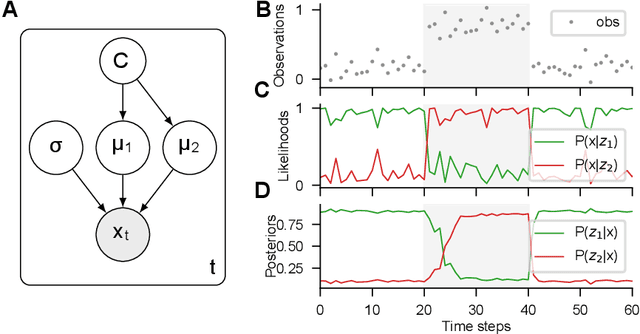Gradient-based inference of abstract task representations for generalization in neural networks
Paper and Code
Jul 24, 2024



Humans and many animals show remarkably adaptive behavior and can respond differently to the same input depending on their internal goals. The brain not only represents the intermediate abstractions needed to perform a computation but also actively maintains a representation of the computation itself (task abstraction). Such separation of the computation and its abstraction is associated with faster learning, flexible decision-making, and broad generalization capacity. We investigate if such benefits might extend to neural networks trained with task abstractions. For such benefits to emerge, one needs a task inference mechanism that possesses two crucial abilities: First, the ability to infer abstract task representations when no longer explicitly provided (task inference), and second, manipulate task representations to adapt to novel problems (task recomposition). To tackle this, we cast task inference as an optimization problem from a variational inference perspective and ground our approach in an expectation-maximization framework. We show that gradients backpropagated through a neural network to a task representation layer are an efficient heuristic to infer current task demands, a process we refer to as gradient-based inference (GBI). Further iterative optimization of the task representation layer allows for recomposing abstractions to adapt to novel situations. Using a toy example, a novel image classifier, and a language model, we demonstrate that GBI provides higher learning efficiency and generalization to novel tasks and limits forgetting. Moreover, we show that GBI has unique advantages such as preserving information for uncertainty estimation and detecting out-of-distribution samples.
 Add to Chrome
Add to Chrome Add to Firefox
Add to Firefox Add to Edge
Add to Edge